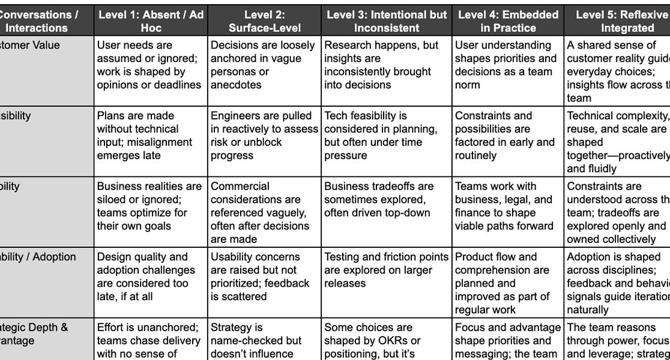The Beautiful Mess
1M
143

Image Credit: The Beautiful Mess
TBM 353: Conversation Quality and Scale
- Analyzing the quality of conversations and interactions within a team or organization can provide insights into its overall health and performance.
- The concept of conversation and interaction 'maturity' is explored, ranging from ad-hoc to reflexive and integrated levels.
- Considerations include whether reaching the highest level of maturity is necessary in a particular domain, identifying areas for improvement, and strategic decision-making.
- A companion lens is introduced to address scalability challenges in excellent local conversations within a company.
- Balancing organizational-wide integration and high performance can be challenging during periods of rapid scale, emphasizing the need for minimally viable global consistency.
- Differentiates between implicit and explicit maturity in organizational cultures, highlighting the importance of contextual formalization in scaled settings.
- Behavioral aspects of conversations and interactions are discussed, suggesting that training alone may not solve issues related to lack of feedback, clear goals, or environmental support.
- Emphasizes the impact of environment, system issues, and various factors beyond skills on desired behavioral changes.
- Poses reflective questions for teams and individuals to assess their conversation dynamics, identify gaps, and improve interaction quality.
- Encourages evaluating existing frameworks and rituals to ensure they still serve their purpose effectively and fostering inclusive spaces for meaningful conversations.
Read Full Article
8 Likes
For uninterrupted reading, download the app